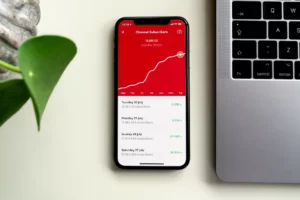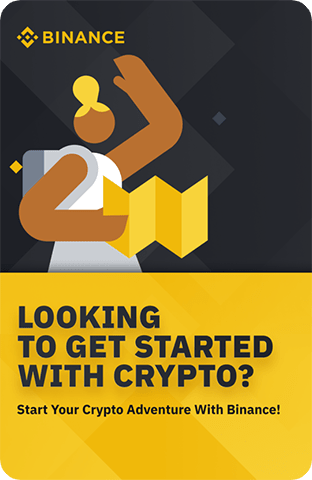Imagine a world in which everyone receives a guaranteed income, regardless of their employment status. A world where economic hardship is alleviated and the pursuit of a fulfilling life is no longer hampered by basic needs. Welcome to the concept of Universal Basic Income (UBI), a revolutionary idea that has been gaining adherents and sparking debate around the world.
In essence, Universal Basic Income is a policy that aims to provide all citizens with a fixed and regular payment from the government to enable them to meet their basic needs and live a dignified life. While the notion of UBI may sound radical to some, it has the potential to address a multitude of social challenges.
In a Nutshell
- The Universal Basic Income (UBI) is a government program that guarantees a periodic cash payment to all citizens, regardless of their employment status or income.
- The main objective of the UBI is to alleviate poverty and provide a safety net for all, ensuring that they have a minimum level of economic security.
- Proponents argue that it can lead to greater equality, reduce income inequality and provide individuals with the freedom to pursue their passions and take risks.
- Its detractors are concerned about its affordability, the possibility that it will discourage work, and the risk that it will replace existing social welfare programs.
- In several countries, such as Finland, Canada and Kenya, pilot projects and experiments have been conducted to assess its impact on poverty, employment and welfare.
- The UBI is still the subject of debate, with no consensus reached on its effectiveness or its potential large scale application.
- Proponents claim that UBI can address the challenges posed by automation and technological advances, ensuring that people continue to have a source of income in an increasingly automated workforce.
- It has gained momentum in recent years, with some political figures and organizations advocating its implementation as a response to economic inequality and changing work patterns.
- While UBI may offer several potential benefits, its implementation would require careful consideration of its funding, impact on labor markets, and overall social implications.
- More research and evidence from ongoing experiments on UBI are needed to inform the ongoing debate and better understand the potential benefits and drawbacks of implementing such a program.
A unique perspective on Universal Basic Income is its ability to foster innovation and entrepreneurship. By providing a safety net for people who want to take risks and pursue their dreams, the RBU removes the fear of failure, allowing for greater creativity and exploration.
Imagine all the people who, despite having extraordinary talents and ground breaking ideas, are currently unable to pursue them. Universal Basic Income could be the driving force behind a new wave of innovation, shaping a future where potential is unleashed and possibilities are limitless.
Moreover, the UBI can transform the structure of our economy. As automation and artificial intelligence continue to reshape industries and labor markets, many fear mass unemployment and rising income inequality. Universal Basic Income offers a solution by providing a reliable source of income for those affected, allowing them to adapt to changing circumstances, acquire new skills, and contribute to society in new and meaningful ways.
Universal basic income is not an unsolvable problem. It is one of the most exciting opportunities we have to build a better future for all.
Andrew Yang
Universal Basic Income is not just a lofty ideal but a practical solution to the challenges we face in the modern world. Whether it is fostering entrepreneurship, addressing income inequality or adapting to the changing employment landscape, the UBI offers a glimmer of hope for a future in which financial security and human potential thrive hand in hand.
Exploring the Potential of UBI to Combat Global Inequality
In today’s world of growing inequality, one concept is gaining favor as a possible solution: Universal Basic Income (UBI). Imagine a world in which everyone, regardless of social or economic status, receives a periodic cash payment from the government. It may sound too good to be true, but many experts believe that the UBI could be the key to combating global inequality.
The UBI is a unique approach to tackling poverty and inequality, as it provides people with a fixed income without means testing or work requirements. This means that even those who are currently out of work or struggling to make ends meet would receive financial assistance. This approach challenges traditional notions of welfare and aims to create a more inclusive society.
But what makes UBI truly revolutionary is its potential to empower individuals and foster economic freedom. By providing a guaranteed income, the UBI allows individuals to have a safety net to take risks and undertake entrepreneurial initiatives.
It gives individuals the freedom to choose work they truly enjoy, rather than being trapped in low paying jobs out of necessity. This unique perspective of IBU highlights its potential not only to address immediate financial needs but also to create a more equitable and prosperous society.
Furthermore, IBU has the potential to bridge the gap between the haves and have nots, reducing wealth disparity and enabling people to access essential resources such as education, healthcare and basic necessities. By lifting people out of poverty, the UBI can break the cycle of inequality and create an environment where everyone has an equal opportunity to prosper.
While the UBI is not without its challenges and critics, its potential to combat global inequality is worth exploring. It offers a unique perspective to address the entrenched problem of economic disparity and offers hope for a future in which no one is left behind. Imagine a world where everyone has the opportunity to pursue their dreams and live a life free from economic hardship. Universal Basic Income could be the key to realizing that vision.
Understanding Universal Basic Income
Universal Basic Income (UBI) is a concept that has garnered a great deal of attention in recent years, sparking debate and discussion around the world. As the global economic landscape continues to evolve, it is essential to understand the intricacies of UBI and its potential impact on society. In this article we will explore the fundamentals of Universal Basic Income, shedding light on this innovative idea that has both supporters and skeptics.
In essence, Universal Basic Income refers to a system in which every individual within a society receives a regular cash payment from the government, regardless of their employment status or income level. This payment acts as a safety net, ensuring that everyone has a basic income to cover essential needs such as food, housing and healthcare.
Proponents of Universal Basic Income argue that it can alleviate poverty, promote equality, and allow people to pursue their passions and creativity without fear of financial instability. By providing a guaranteed income, the UBI aims to address social problems and reduce income disparities, ultimately fostering a more inclusive and equitable society.
However, critics express concern about the feasibility and affordability of large scale implementation of the UBI. They argue that it may disincentivize work and place an undue burden on taxpayers. Finding the right balance between providing financial security and maintaining economic productivity remains a key challenge.
Despite ongoing debates and diverse perspectives, Universal Basic Income remains a topic of interest and exploration. Its potential impact on labor force, income distribution and social dynamics arouses curiosity and paves the way for further research and experimentation.
As our society faces the challenges of the 21st century, it is increasingly important to fully understand the implications of Universal Basic Income. Whether you see it as a promising solution or a controversial notion, delving into the intricacies of UBI will contribute to a more informed and thought provoking conversation about the future of our economic systems.
Possible Sources of Funding for UBI
Possible sources of funding for Universal Basic Income Universal Basic Income (UBI) is a concept that has attracted a great deal of interest in recent years, as it promises to provide a stable income to all citizens, regardless of their employment status. While the idea is certainly attractive, one of the biggest challenges is identifying sources of funding to support such a program. Let’s now explore some possible avenues for financing the UBI:
Tax Reform
Implementation of the UBI would require a significant overhaul of the tax system. By adjusting tax brackets and introducing new taxes on capital gains or high incomes, governments could generate the funds needed to finance the UBI. These changes would ensure a fairer distribution of wealth and help offset the costs of providing a universal income.
Resource Dividends
Some countries have successfully implemented resource dividend programs, in which a portion of the revenue generated from natural resources, such as oil or minerals, is distributed to citizens. By expanding these programs or exploring similar initiatives, governments could leverage existing resources to finance UBI.
Technology Based Financing
With the rise of automation and artificial intelligence, the introduction of a tax on technology or robotic labor could generate substantial revenues. This strategy acknowledges that everyone should be able to enjoy the advantages of technological advancements, not just a select few.
Reduction of Welfare Programs
UBI has the potential to streamline existing welfare programs, reducing administrative costs and the need for numerous government agencies. By reallocating these funds to UBI implementation, governments can ensure a more efficient and effective social safety net.
The aforementioned funding sources are just a few examples of the possibilities for financing the UBI. It is important to note that the implementation of the UBI requires careful consideration and analysis of each country’s unique circumstances. Collaboration between governments, economists, and policy experts is necessary to determine the best mechanisms for financing the UBI, seeking a balance between sustainability and social welfare. With the right approach, UBI has the potential to reshape social welfare and create a more inclusive and equitable society for all.
Debates Surrounding Universal Basic Income
Universal Basic Income (UBI) has become a hot topic of discussion in recent years, sparking debates around the world. As the name suggests, UBI is a system in which all citizens receive a regular and unconditional income from the government. While some see it as a revolutionary solution to alleviate poverty and create economic stability, others are skeptical about its viability and long term implications.
Proponents of the UBI argue that it could address income inequality and guarantee a minimum standard of living for all. They believe that by providing a guaranteed income, people would have more freedom to engage in creative activities, start businesses, or improve their skills. Proponents also claim that the UBI would allow for a smoother transition in an era of increasing automation, where traditional employment opportunities may become scarce.
However, its detractors fear that it could affect work incentives, productivity and sustainability. They argue that providing free money to all citizens without any work requirements could discourage people from seeking employment and slow economic growth. In addition, detractors question how the UBI would be financed, as implementing such a program on a large scale would require significant financial resources.
A unique perspective on UBI is to view it as an investment rather than an expense. Rather than consuming resources, proponents argue that UBI could stimulate local economies, as beneficiaries would have more purchasing power, resulting in increased consumer spending. This, in turn, could have a positive ripple effect on businesses, creating new jobs and boosting economic prosperity. In conclusion, the debates surrounding Universal Basic Income continue to capture the attention of policymakers and economists.
While UBI presents an innovative approach to addressing income inequality and adapting to social change, there are valid concerns that need to be addressed for its successful implementation. Given its potential as an investment in economic growth, the ongoing debates surrounding the UBI are likely to shape the policies and social welfare systems of the future.
Case Studies of Universal Basic Income
In this section, we explore fascinating case studies of Universal Basic Income (UBI), shedding light on its potential impact and unique perspective to address socioeconomic challenges. Imagine if every citizen had a guaranteed income, no strings attached. Sounds utopian, doesn’t it? Well, it’s no longer just an idea: several real life experiments have shown promising results.
One of the most notable case studies on UBI took place in Finland. Between 2017 and 2018, the Finnish government conducted a nationwide pilot program, providing 2,000 randomly selected unemployed people with a monthly basic income of 560 EUR. The aim was to examine whether the UBI could simplify the social security system and incentivize people to find work.
The results were intriguing. Although the UBI did not significantly increase participants’ employment rates, it did improve their overall well being. Beneficiaries reported lower levels of stress, greater trust in social institutions, and a greater sense of economic security. These results suggest that UBI could have a profound impact on social factors beyond employment.
Another captivating case study is from Kenya, where the nonprofit GiveDirectly launched a large scale experiment. Through a mobile money transfer system, they provided a basic income to thousands of people in impoverished rural communities. The results were remarkable: beneficiaries invested in education, started businesses, and improved their standard of living.
These case studies offer a unique perspective on UBI as a possible solution to the challenges of income inequality, poverty, and social welfare. They challenge conventional notions and encourage us to explore alternative approaches to address some of our society’s most pressing problems.
Understanding the results and implications of these real world experiments is crucial for policymakers, economists, and society as a whole. Examining the UBI case studies allows us to better understand the potential benefits and limitations of this innovative concept. Let us delve deeper into these studies and explore the path to a more equitable and secure future for all.
Deep Dive in the UBI Pilot in Kenya by GiveDirectly
The aim of this initiative was to alleviate poverty and empower people living in dire conditions through direct cash transfers. Adopting a colloquial and informative tone, we aim to make the topic of finance accessible to readers who are new to the field.
GiveDirectly is a trusted organization operating in multiple countries, leveraging mobile technology to transfer funds directly to recipients. Its UBI pilot project in Kenya aimed to provide a regular cash transfer to thousands of people, enabling them to meet their basic needs and make decisions that could have a positive impact on their lives.
The key objective of the UBI pilot project in Kenya was to assess the potential benefits and challenges of implementing a universal basic income program in a low income country. GiveDirectly aimed to investigate how direct cash transfers could contribute to poverty reduction, economic empowerment and the overall well being of people in targeted communities.
The UBI pilot targeted rural households in western Kenya, an area characterized by high poverty rates and limited access to financial services. GiveDirectly disbursed $22 million over 12 years to more than 10,000 households, providing them with a regular monthly cash transfer. The amount varied from household to household, allowing for a nuanced exploration of the impact of different sums.
The UBI pilot generated several key findings that shed light on the potential impact of cash transfers as a poverty reduction strategy. First, the research showed significant improvements in the food security of recipient households. Cash transfers enabled households to purchase a more diverse range of nutritious foods, thus contributing to improved health outcomes.
Second, the pilot project demonstrated a positive impact on entrepreneurship and economic activity. Beneficiaries used the cash transfers to start or expand small businesses, resulting in increased income and employment opportunities. This finding supports the idea that providing people with a stable income can stimulate local economies.
In addition, the UBI pilot project highlighted a decrease in stress and psychological distress among beneficiaries. The financial stability generated by the cash transfers allowed individuals to focus on other areas of their lives, such as education, health and personal development.
The UBI pilot project conducted by GiveDirectly in Kenya provides valuable information on the potential positive effects of direct cash transfers as a tool for poverty reduction and empowerment. By engaging with communities and empowering individuals to make decisions about their own lives, this approach has shown promising results in terms of improving food security, stimulating economic activity and reducing psychological distress.
With this case study, we have explored the UBI pilot project in Kenya in an accessible and concise way, making a complex financial concept accessible to readers new to the field. This real world example illustrates the power of finance as a tool for social change when applied with a human centered approach.
UBI as a Tool for Combating Global Inequality
Universal Basic Income (UBI) is emerging as a potential tool to combat global inequality in an increasingly uncertain world. This revolutionary concept aims to provide a guaranteed income to all people, regardless of their employment status or socioeconomic background. With the rise of automation and the collaborative economy, the UBI presents a unique perspective on how we can navigate the changing dynamics of work and ensure a more equitable society.
Imagine a world where everyone has a safety net, where the fear of poverty and financial instability is alleviated. The UBI has the potential to address the root causes of inequality by providing people with the means to meet their basic needs and pursue opportunities for personal and professional growth. It shifts the focus away from temporary solutions, such as traditional welfare programs, to a sustainable approach that empowers people to thrive in an ever changing economy.
The implementation of UBI also has broader social implications. By guaranteeing a minimum income for all, it enables people to take risks, engage in entrepreneurship and contribute to innovation and creativity. This could lead to an economic landscape that fosters diversity and resilience, as people are freed from the constraints of financial insecurity. In addition, the UBI acts as a catalyst for social mobility, leveling the playing field and reducing the barriers that prevent people from escaping the cycle of poverty.
However, critics argue that UBI can disincentivize labor participation and create dependency on the state. It is crucial to strike a balance between providing a safety net and incentivizing individuals to actively contribute to society. Pilot programs are currently underway in countries such as Finland and Canada, with the aim of addressing these concerns and exploring the potential long term impact of UBI.
In conclusion, Universal Basic Income offers a new perspective to combat global inequality by providing each individual with a guaranteed income. Its implementation could lead to a more equitable society in which individuals have the means to prosper and contribute to the economy. As the world faces the challenges of the future of work, the UBI presents a bold solution that deserves further exploration and analysis.
Challenges and Opportunities
In the world of economic policy, few topics are as controversial and hotly debated as the Universal Basic Income (UBI). This progressive concept proposes that every individual in a society receive a regular and unconditional amount of money from the government, regardless of their employment status. Although the UBI has gained supporters in recent years, it also faces significant challenges and possibilities that demand our attention.
One of the main challenges of implementing the Universal Basic Income is its potential impact on the economy. Its detractors argue that providing an unconditional income to all citizens could discourage work and productivity, leading to stagnation. However, proponents argue that UBI can actually increase productivity by allowing people to do more meaningful and satisfying work without the constraints of financial instability.
Another challenge lies in the financial viability of UBI. Critics argue that funding such a program would require steep tax hikes or a massive budget reallocation that could strain public finances. To address this problem, innovative financing models, such as tax reforms or cuts in unnecessary public expenditures, should be explored.
Despite these challenges, the UBI offers numerous possibilities. It has the potential to alleviate poverty and reduce inequalities by providing a basic safety net for all individuals. By guaranteeing a minimum income, it can address the socioeconomic disparities that exist in many societies.
In addition, the Universal Basic Income could encourage individuals to undertake entrepreneurial initiatives and take risks that they might not otherwise be able to take due to financial constraints. This, in turn, could drive innovation and economic growth, benefiting society as a whole.
In conclusion, Universal Basic Income presents both challenges and opportunities. While its implementation may face economic and financial hurdles, it holds the promise of reducing poverty, fostering entrepreneurship and creating a more just society. As this concept continues to generate debate, it is critical to thoroughly examine and discuss its potential impact, ensuring a balanced and informed approach to shaping the future of our economy.
Long Term Viability of UBI
As the world grapples with the economic consequences of the COVID 19 pandemic, the concept of Universal Basic Income (UBI) has attracted a great deal of interest. But what about its long term viability. Is UBI only a temporary solution or does it hold promise beyond these difficult times?
The UBI, often described as a periodic, unconditional cash payment to all citizens, has been the subject of debate for years. Its proponents argue that it could alleviate poverty, reduce income inequality, and help those facing job destruction due to automation. Its detractors, on the other hand, are concerned about affordability and potential disincentives to work.
However, with the pandemic highlighting the fragility of our economic systems, it may be time to reconsider UBI as a sustainable solution. The crises we face have highlighted the vulnerability of workers in precarious and low paid jobs, making a strong case for the potential long term impact of UBI.
Consider this unique perspective: the UBI not only addresses immediate needs, but also fosters economic resilience and promotes entrepreneurship. With a guaranteed basic income, people are more likely to pursue what they are passionate about and create businesses, spurring innovation and driving economic growth. This entrepreneurial spirit can help create new jobs and empower people to contribute meaningfully to society.
In addition, the UBI could complement existing welfare systems by providing a simple, efficient and comprehensive safety net. By replacing the complex web of means tested benefits, UBI eliminates bureaucratic inefficiencies and ensures that no one is left out.
The pandemic has shown us that extraordinary circumstances require extraordinary solutions. The UBI, if properly implemented and supported by progressive fiscal measures, has the potential to address the many challenges we face today and shape a more equitable and resilient future
Wrap Up
As we conclude our exploration of Universal Basic Income (UBI), it’s clear that this concept is more than just a theoretical idea. It’s a beacon of hope for a more equitable and prosperous future. UBI stands as a bold proposition to redefine economic stability, offering a glimpse into a world where financial insecurity is a thing of the past.
Imagine a society where each individual has the freedom to chase their dreams, unshackled by the constant worry of basic survival. UBI could be the key that unlocks this potential, fostering an environment where creativity and innovation thrive. By guaranteeing a basic income, we open doors to new possibilities, encouraging people to engage in meaningful work, pursue education, or even start new ventures without the fear of failing to meet their essential needs.
However, the road to implementing Universal Basic Income is not without its challenges. Questions about its funding, impact on labor motivation, and overall effects on the economy remain at the forefront of discussions. Yet, these challenges do not diminish the transformative power UBI holds. They simply highlight the need for thoughtful, inclusive, and innovative approaches to policy making.
As we move forward, it is crucial to continue the dialogue, to dive deep into research, and to learn from ongoing experiments around the world. The journey towards a UBI enabled world is not just about implementing a policy. It’s about reshaping our societal structure to prioritize human dignity, equality, and opportunity for all.
Universal Basic Income is not just a financial model; it’s a vision of a more humane world, a testament to our capacity for compassion and progress. It beckons us to reimagine the foundations of our society and to build a future where prosperity is not a privilege but a basic right accessible to everyone.
So, let us keep this conversation alive, exploring every avenue, questioning every assumption, and daring to envision a world transformed by the promise of Universal Basic Income. The path may be long and complex, but the destination is a world of enhanced equality, security, and opportunity. Is undoubtedly worth the journey!
FAQs

Universal Basic Income (UBI) is a social welfare system in which every citizen or resident of a country receives a periodic and unconditional payment from the government.
It is a fixed amount of money given to individuals to cover their basic needs, regardless of their employment status or income level.
Universal Basic Income is proposed as a possible solution to address economic inequality and provide a safety net for people in an increasingly automated and uncertain labor market. It aims to ensure that everyone has access to a certain level of financial security and can meet their basic needs.
Funding for the UBI can come from a variety of sources, including taxes on income or wealth, reduction or reallocation of existing welfare programs, and revenues from other sources, such as a carbon tax or a financial transaction tax. The specific financing mechanisms may vary depending on the proposed implementation of the UBI.
Universal Basic Income has the potential to alleviate poverty, reduce income inequality, and provide people with greater economic freedom and security.
It can also simplify the welfare system by replacing complex means tested programs with a universal payment, which could reduce administrative costs.
While the Universal Basic Income has its potential benefits, there are a number of challenges and concerns. Some are concerned that it may disincentivize work or cause inflation.
There are also concerns about the affordability of implementing UBI on a large scale and its potential impact on public budgets. In addition, the actual implementation and determination of the optimal amount of basic income is a matter of ongoing debate.
Article sources
At Capital Maniacs, we are committed to providing accurate and reliable information on a wide range of financial topics. In order to achieve this, we rely on the use of primary sources and corroborated secondary sources to support the content of our articles.
Primary sources, such as financial statements and government reports, provide firsthand evidence of financial events and trends. By using primary sources, we are able to directly reference information provided by the organizations and individuals involved in these events.
Secondary sources, such as financial analysis and commentary, interpret and analyze primary sources. While these sources can be useful for providing context and background information, it is important to use corroborated sources in order to ensure the accuracy and reliability of the information we present.
We take pride in properly citing all of our sources, both primary and secondary, in order to give credit to the original authors and to allow our readers to verify the information for themselves. We appreciate your trust in our website and are committed to upholding the highest standards of financial journalism.
- Imf.org – What Is Universal Basic Income? – IMF Finance & Development Magazine
- En.wikipedia.org – Universal basic income – Wikipedia
- Basicincome.stanford.edu – What Is UBI
- Investopedia – What Is Universal Basic Income (UBI), and How Does It Work?
- Nlc.org – Basic Income in Cities: A Guide to City Experiments and Pilot Projects
- College.unc.edu – The pros and cons of universal basic income – College of Arts and Sciences
- Jrf.org.uk – Is Universal Basic Income a good idea?


























